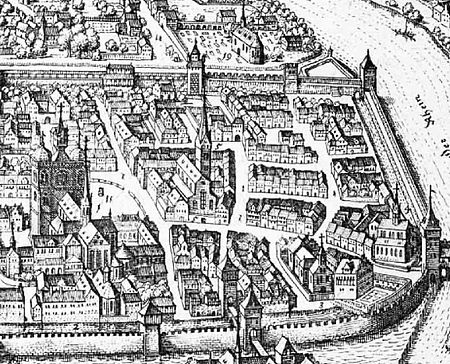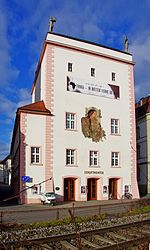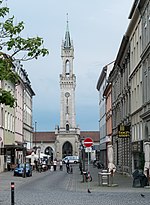Scots Monastery Constance
12th-century establishments in the Holy Roman EmpireBenedictine monasteries in GermanyChristian monasteries disestablished in the 16th centuryChristian monasteries established in the 12th centuryFormer Christian monasteries in Germany

The Saint James Scots Monastery in Constance, Germany was a Benedictine monastery, which, like the other Scots monasteries, was founded by Irish monks in the course of the second phase of the Hiberno-Scottish mission. It was situated to the west of the historic city wall near the banks of the Rhine on what is known today as Schottenstraße (Scots Street).
Excerpt from the Wikipedia article Scots Monastery Constance (License: CC BY-SA 3.0, Authors, Images).Scots Monastery Constance
Schottenstraße, Verwaltungsgemeinschaft Konstanz
Geographical coordinates (GPS) Address Nearby Places Show on map
Geographical coordinates (GPS)
| Latitude | Longitude |
|---|---|
| N 47.666265 ° | E 9.173302 ° |
Address
Schottenkapelle
Schottenstraße 34
78462 Verwaltungsgemeinschaft Konstanz, Konstanz-Altstadt
Baden-Württemberg, Germany
Open on Google Maps









